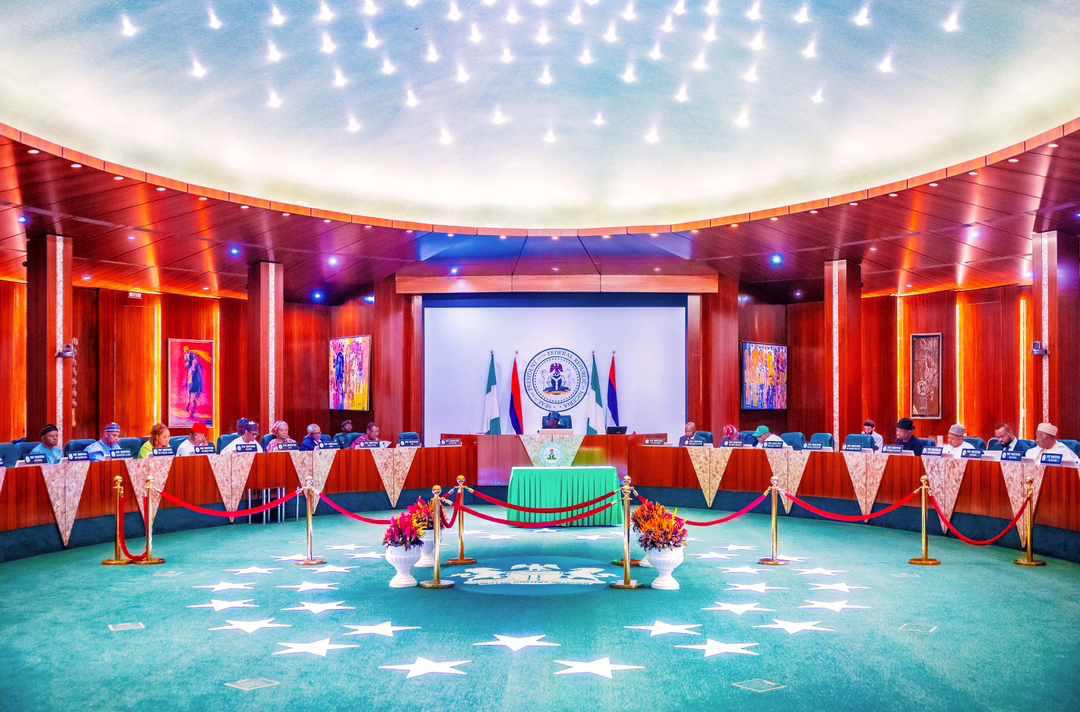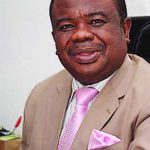...To get all news updates, Join our WhatsApp Group (Click Here)
Also Join our WhatsApp Channel (Click Here)
Strong indications have emerged that President Bola Tinubu is planning to rejig his cabinet to ease out underperforming ministers.
Tinubu has been facing increasing pressure from within and outside his party, the All Progressives Congress, to sack ministers some of whom appeared to have been inactive.
The President had last year set up the Result and Delivery Unit, headed by the Special Adviser to the President on Policy Coordination, Mrs Hadiza Bala-Usman, to measure the performance of ministers and other top government officials serving in his administration. He warned that any minister or aide that underperformed would be sacked.
Last week, Tinubu replaced the directors-general of the National Intelligence Agency and the Department of State Services after the heads of the agencies resigned their appointments.
Sources in the Presidency told Sunday PUNCH that a cabinet reshuffle was imminent.
The officials, who requested anonymity because they were not authorised to discuss the matter, revealed that some ministers would be dismissed, while others would be reassigned to other ministries for improved effectiveness.
However, the sources did not disclose the ministers likely to be affected.
“What I can tell you is some (ministers) will go. A few will swap positions, then new people will be brought on board. But the President will be focused more on capacity now; on people who can easily add value to his government”, a source stated.
Another source disclosed that Tinubu’s close associates agreed that the President required a stronger cabinet to implement his policies effectively.
The source stated, “The general concern among some of his aides, friends, and even the public is that the cabinet can be far better than this. There is a consensus among his (Tinubu) close friends that he needs a stronger cabinet to push through with his policies. It is one thing to announce policies and it is another thing for your ministers to deliver the outcomes you want. Oftentimes, it is the capacity of your cabinet members and heads of agencies that determines how you will deliver on those outcomes.
“If you look at the editorial by Financial Times earlier this week, it was not palatable at all. And what they were saying is that, yes, he has taken bold decisions, the reforms are good, but he has a weak cabinet that cannot help him to deliver on those reforms. That is why it appears like we are wobbling. So, he needs to bring in people with more energy and expertise, who are more patriotic and willing to roll up their sleeves and work for Nigeria and turn things around.
“If the past one year has not been eventful, he cannot afford to waste another year. This next one year is very critical. It is the next one year that will define the government.”
‘We expect nothing good from Tinubu, APC’
Meanwhile, opposition political parties have said they are not expecting anything good from the APC-led Federal Government.
Speaking to Sunday PUNCH, Yunusa Tanko, the campaign spokesman for a former Labour Party Presidential candidate, Peter Obi, said the party was more concerned with improved electoral reforms.
He said, “We are not really interested in whether Tinubu changes or sacks his ministers. One of the major areas we thought there would be an improvement in is our demand for electoral reform. If we have an improved electoral reform, it will inevitably give us a good opportunity for credible elections to take place.
“Sacking or replacing your cabinet with new people is an extension of state capture. He will only be replacing them with his loyalists which we know will be a strategy ahead of 2027. But if he is really serious about improving the performance of his governance at the moment, he can start considering reshuffling his cabinet. Quite a number of the ministers are not measuring up to expectations.”
On his part, the Deputy National Publicity Secretary of the People’s Democratic Party, Ibrahim Abdullahi, attributed the ministers’ woeful performance to Tinubu’s lack of empathy for Nigerians.
Abdullahi said, “It is not about changing the cabinet. When you acquire power through fraudulent and desperate means, it would take a million efforts, programmes, and policies to correct it because something cannot stand without a foundation. So what is the foundation of his presidency? That is the crux of the matter. As PDP, we are not expecting anything good during this period of divine grace, that God will keep him in power.”
The National Secretary of the Coalition of United Political Party, Peter Ameh, cautioned Tinubu against making the same mistake as his predecessor, Muhammadu Buhari, by keeping his ministers for eight years.
He said CUPP was not surprised by the failure of Tinubu’s ministers, adding that a responsible government would have dismissed them long ago.
Meanwhile, the Executive Director of the Centre for Anti-Corruption and Open Leadership, Debo Adeniran, said only less than 15 ministers had met the expectations of Nigerians with their performance.
He argued that for Tinubu to succeed, he must “weed out” ministers underperforming and merge ministries and agencies performing similar functions.
He listed some of the underperforming ministers to include: the Minister of Education, Prof. Tahir Mamman; Minister of Health, Muhammad Pate; Minister of State for Petroleum Resources, Ekperikpe Ekpo; Minister of Transportation, Sa’idu Ahmed Alkali; and the Minister of Power, Adebayo Adelabu.
Adeniran described some of Tinubu’s appointments as “jobs for the boys” and called on the President to urgently implement the recommendations of the Steve Orosanye report to reduce the size and cost of government.
“Most of the ministers are not performing; they are just noise makers and they seem not to understand the job they have been appointed to do. From our assessment, few of the ministers, less than 15 of them are performing.
“The President needs to weed out more than two-third of the crowd he put together as his cabinet. If he has 48 ministers, we are saying that he should weed out a minimum of 36 of them, so that we will know those that are the performing ministers.
“If he (Tinubu) continues with these people, many of them are pulling him back on what he calls his mission in office and that is why Nigeria is in problem today. Weeding them (ministers) out will stabilise his administration more and make those that will remain to be focused. When he weeds out that two-third, he should not replace them with another, he should just merge the ministries with other ones and supervise others directly”, Adeniran said.
Also speaking, the Secretary of the Joint Action Front, Abiodun Bamgboye, attributed the poor performance of the ministers to the anti-people policies of Tinubu, saying even if the President sacked and replaced them with angels, they would fail.
According to him, the President is trying to save his face by planning to sack underperforming ministers, adding that the poor performance of the ministers was a reflection of Tinubu’s leadership.
“When you look at the current economic situation of the country, it does not suggest that any minister has performed to the expectations of Nigerians, but is not the question of ministers, it is the economic policies that this regime adopted,” Bamgboye said.
An economic expert, Aliyu Ilias, argued that holding ministers accountable by reducing their numbers could serve as a check on performance and improve governance.
Ilias stated that the current administration’s decision to maintain a large number of government officials was misguided.
He said, “We have not seen them sacking or reducing ministers. Rather, we see them praising them by saying that there is a livestock ministry again. This doesn’t make sense. Let’s give the President the benefit of the doubt. Sacking underperforming ministers will help this government and this will be like a check and balance on them to perform well.”
You can get every of our news as soon as they drop on WhatsApp ...To get all news updates, Join our WhatsApp Group (Click Here)
Also Join our WhatsApp Channel (Click Here)

















